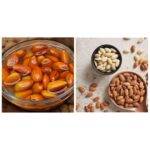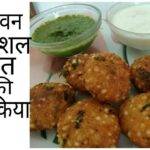Eyes are organs of the visual system. The ability to receive and process visual detail, as well as enabling several photo response functions that are independent of vision. Eyes detect light and convert it into electro-chemical impulses in neurons.
Poor eyesight is a more common problem these days. A healthy pair of eyes, especially at an older age is no less than a blessing, as can be vouched by those who are suffering from some kind of vision loss issues.
Maintaining a well-balanced, healthy diet is key to keeping your eyes healthy, and may help reduce your risk for developing eye conditions. Serious eye conditions may be avoided if you include foods that contain a range of vitamins, nutrients, and minerals, known as antioxidants.
Here are seven of the best foods for your eyes.
Contents
1. Almonds
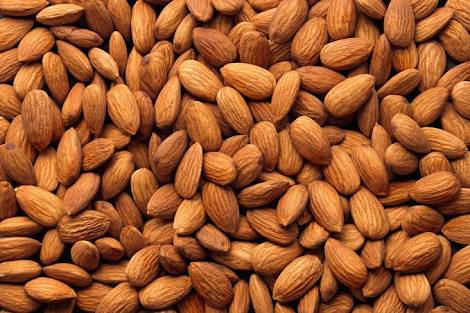
Amonds contain vitamin E. Almonds are another great food option for improving your eyesight. Vitamin E helps slow down macular degeneration, according to research.
Almonds, like other nuts and seeds, are generally good for eye health.
Vitamin E guards against unstable molecules that target healthy tissue. Consuming regular amounts of this vitamin can help to prevent age-related macular degeneration as well as cataracts.
Other nuts and seeds that contain vitamin E include sunflower seeds, hazelnuts, and peanuts. You can eat almonds as a snack at any time. Almonds are also tasty in your breakfast cereal, yogurt, or in salads. Almonds are high in calories, so try to limit your intake to one to two servings a day.
2.Vegetables
Green Leafy vegetables-
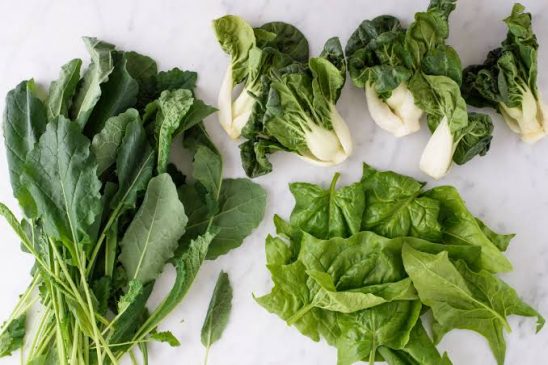
Spinach, along with other dark leafy greens like collard greens and kale, contains two of the most essential antioxidants for eye health, i.e. zeaxanthin and lutein. Macula, the part of the eye helpful in shielding the eye from damaging light, stores these antioxidants. Lutein plays a special role in filtration of blue light. These antioxidants also play an important role in maintaining rich blood flow to your eyes. Experts recommend a least of three servings every week.
Bean-
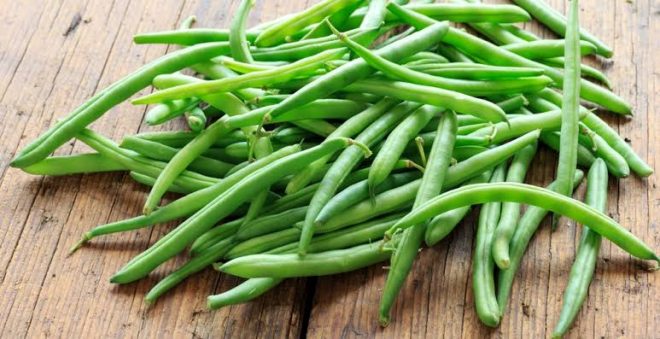
Whether it is kidney beans, lentils or black-eyed peas, all of these offer ample amounts of bioflavonoids and zinc, offering protection to the retina and lowering the risks of developing cataracts and macular degeneration.
Carrots-
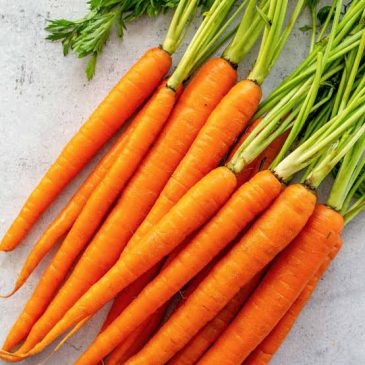
Carrots and its juice are too good for eyes. Carrots are high in vitamin A, a nutrient essential for good vision. Have you ever wondered there might be a certain degree of truth to the age-old adage that rabbits never wear glasses? With rich amounts of beta-carotene – an antioxidant carotenoid converted to vitamin A by your body – quite essential for a healthy vision, the significance of carrots seems more reality than fiction. Vitamin A plays a vital role in production of rod and cone cells, essential for low light vision and color vision. Free radical damage is also minimized by beta-carotene, which helps protect against eye diseases like macular degeneration, cataracts as well as glaucoma.
Bell Peppers-
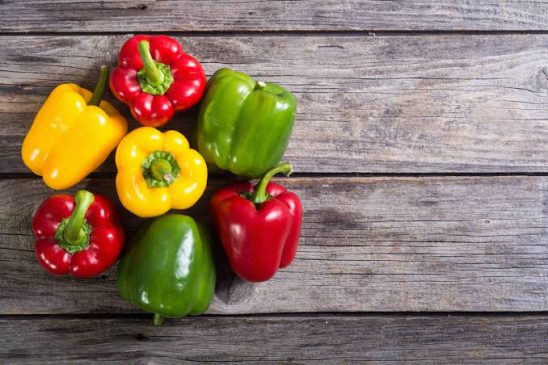
Bell peppers also minimize the risk of age related macular degeneration, but yes, they are known to do that. You’ll only need a cup full of these to get 100% of the recommended daily value of vitamin A and vitamin C. So, make sure you’re having these on your menu list.
3. Fruits
Oranges-
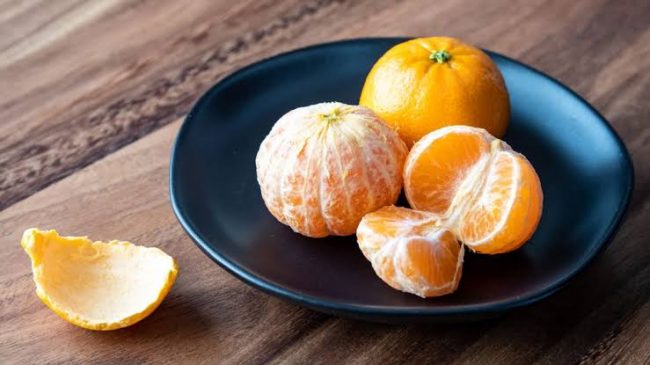
Oranges and other citrus fruit contain vitamin C, which is key for eye health. It helps counter the risks of cataracts and macular degeneration, because much like other antioxidants, it is good at preventing free-radical damage. Collagen building is another way it is beneficial for your eyes, helping to provide structure for your cornea.
The vitamin, found mainly in fresh fruits and vegetables, contributes to healthy blood vessels in your eyes. It can combat the development of cataracts, and in combination with other vitamins and nutrients, age-related macular degeneration.
You can drink orange juice, peel one as a snack, or add them to a fruit salad.
Blueberries-
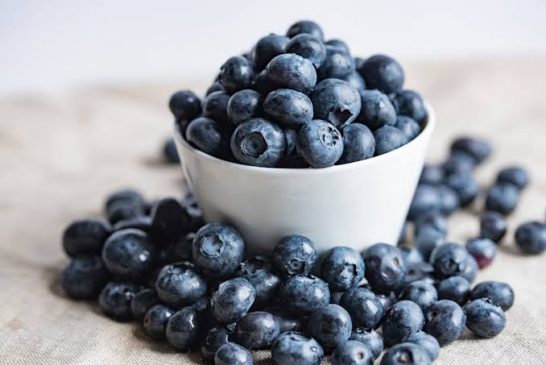
Blueberries are amazing for eye health when it comes to the richness in anthocyanins, potent antioxidants capable of crossing the blood-retina barrier with ease while providing extra vision protection. They also helps to improve vision of people suffering from normal tension glaucoma, the type of glaucoma in which optic nerve is damaged. Eating blueberries regularly can also improve vision and strengthen blood vessels in the back of the eyes.
3. Seeds
Chia seeds-
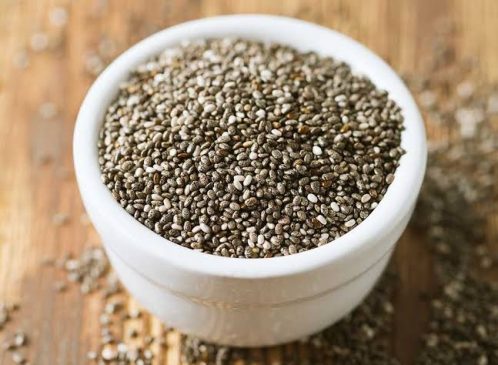
They have high omega-3 fatty acids content as compared to flax seeds or salmon, more calcium than a glass of milk, and more antioxidants than blue berries. Make them a part of your daily diet to reduce the oxidative damage of the lens and retina, and promote the overall health of eyes.
Sunflower seeds-

Sunflowers seeds are rich in vitamin E
Like hazelnuts, avocados, olive oil and whole grains. This powerful antioxidant vitamin helps maintain good eyesight because it decreases the risk of age-related macular degeneration and cataracts.
4. Eggs
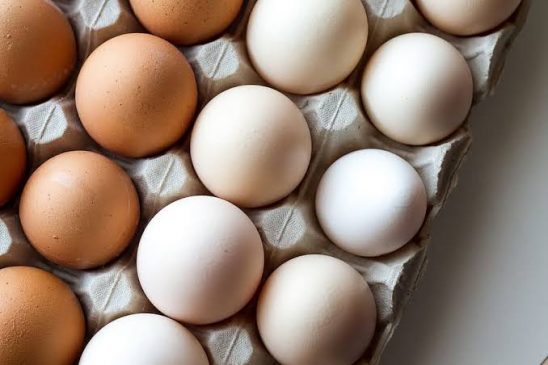
Eggs are an excellent source of lutein and zeaxanthin, which can reduce the risk of age-related sight loss. Eggs are also good sources of vitamins C and E, and zinc. Eggs are a great food to eat for eye health. Vitamin A safeguards the cornea. The cornea is the surface of the eye.
5. Fish
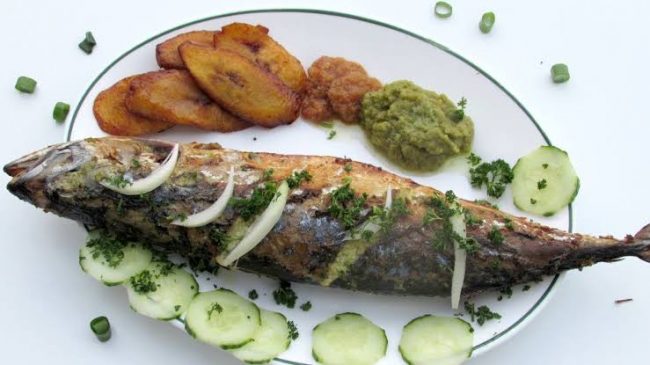
Cold-water fish such as salmon, tuna, sardines and mackerel are rich in omega-3 fatty acids, which may help protect against dry eyes, macular degeneration and even cataracts. These are healty fats. Oily fish are fish that have oil in their gut and body tissue, so eating them offers higher levels of omega-3-rich fish oil
If you don’t eat seafood, you can get a good supply of omega-3s by using fish oil supplements or taking vegetarian supplements that contain black currant seed oil.
6. Whole Grains
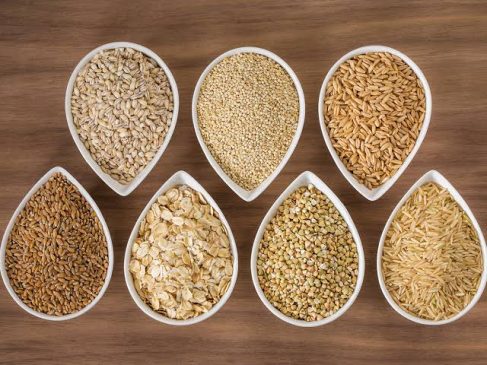
A diet containing foods with a low glycemic index can help reduce your risk for age-related macular degeneration. Swap refined carbohydrates for quinoa, brown rice, whole oats and whole-wheat breads and pasta. The vitamin E, zinc and niacin found in whole grains also help promote overall eye health.



